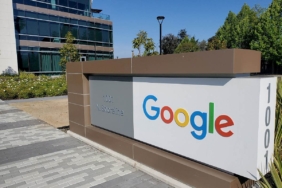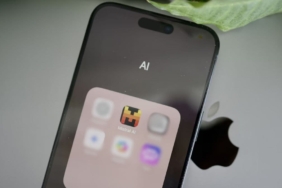OpenAI is confronting a challenging legal scenario as it contests claims that Indian courts have jurisdiction over its United States-based operations. This argument follows a similar path taken by Telegram, which has faced difficulties in court with comparable defenses. Additionally, U.S. technology firms continue to encounter scrutiny from the Indian government regarding compliance issues.
As OpenAI, which identifies India as its second-largest market with millions of users, finds itself embroiled in a legal dispute initiated by the domestic news agency ANI over alleged copyright infringement, the stakes have intensified. The case has attracted increased attention in recent weeks, particularly as prominent book publishers and media conglomerates, including those led by billionaires Gautam Adani and Mukesh Ambani, have united against OpenAI.
OpenAI is also grappling with increasing competition from Chinese startup DeepSeek, which has made significant advances in affordable artificial intelligence technology. The company asserts that its AI models are created using publicly available information and adhere to fair use principles. Similar copyright infringement suits are also underway against OpenAI in the United States, Germany, and Canada.
The specifics of OpenAI’s legal arguments in other countries remain largely undisclosed; however, in New Delhi, the company is challenging ANI’s claims by stating in court documents that its terms of use mandate dispute resolution in San Francisco. OpenAI maintains that it does not have any servers or data centers in India, which should exempt it from Indian jurisdiction.
“This is an argument from a pre-Internet era that is unlikely to be successful in today’s Indian courts,” remarked Dharmendra Chatur, a partner at Poovayya & Co., an advisory firm for foreign tech entities.
Chatur explained that companies like Google, X, and Facebook operate through their international branches and often find themselves involved in litigation in India. Indian courts typically assess whether a website is accessible and offers services to users within the country when determining jurisdiction.
OpenAI has not provided comments to Reuters regarding the ongoing litigation, and its legal representative in India, Amit Sibal, declined to make any statements at this time.
Nonetheless, six additional attorneys, along with two court-appointed experts—Arul George Scaria and Adarsh Ramanujan—support the notion that Indian judges possess the authority to adjudicate this case. Scaria’s court filing from January 25 reflects this stance, asserting that OpenAI’s services are indeed available to Indian users, although the document has not been publicly released.
OpenAI’s own website indicates it applies an 18% tax on its paid offerings in India, and the company has noted significant growth in the usage of ChatGPT within the country.
If OpenAI prevails in its jurisdiction argument, it will effectively evade the copyright suit in India. Conversely, if it fails, the company will need to confront ANI’s demands for the deletion of training data and pay $230,000 (approximately ₹2 crore) in damages.
The Delhi court is scheduled to reconsider the case in February, focusing on the jurisdiction claims and related arguments.
Regarding the lawsuit, Reuters, which holds a 26% stake in ANI, has clarified that it is not involved in ANI’s operational practices.
Legal Precedent and Challenges
Attorneys and expert Scaria have cited a 2022 verdict involving Telegram as a relevant legal precedent that supports the authority of Indian courts. In that instance, an Indian author sued Telegram over leaked copyrighted materials, but the company resisted by claiming it was subject to Dubai law and maintained its servers outside India.
Subsequently, Telegram was ordered to disclose relevant details following a Delhi judge’s ruling, stating that traditional territoriality claims no longer apply, and that refusal to host servers in India does not prevent Indian courts from resolving copyright disputes.
OpenAI contends, however, that a 2009 Indian court ruling specifies that mere accessibility of a webpage or application does not grant jurisdiction over a foreign defendant.
Even if OpenAI’s jurisdiction argument fails initially, an intellectual property attorney noted that it could subsequently provide grounds for the company to argue that any court order would need to be enforced internationally. The lawyer requested anonymity due to the sensitivity of the ongoing legal matters.
Although Prime Minister Narendra Modi’s administration is not a direct party to the OpenAI lawsuit, its relationship with major technology firms has been characterized by a mix of collaboration and tension. In 2021, India’s IT minister explicitly rejected the notion that U.S. tech companies could operate solely under American laws.
In a notable instance of conflict that year, Twitter—now called X—disregarded government requests to remove specific content, prompting a public statement declaring that “Twitter needs to comply with the laws of the land.” The company ultimately complied but subsequently initiated a lawsuit against the Indian government, which is still in progress.
Amid these rising legal challenges, OpenAI’s CEO, Sam Altman, has scheduled a visit to India on February 5. Internal communications reveal that two other senior executives, James Hairston and Srinivas Narayanan, are also expected to be present in the country during this time.
Reflecting on the Indian market, OpenAI’s Indian executive, Pragya Misra, emphasized last year, “India is incredibly important … we’ve observed a significant uptake of ChatGPT.”
© Thomson Reuters 2025
(This article has not been edited by NDTV staff and is auto-generated from a syndicated feed.)





